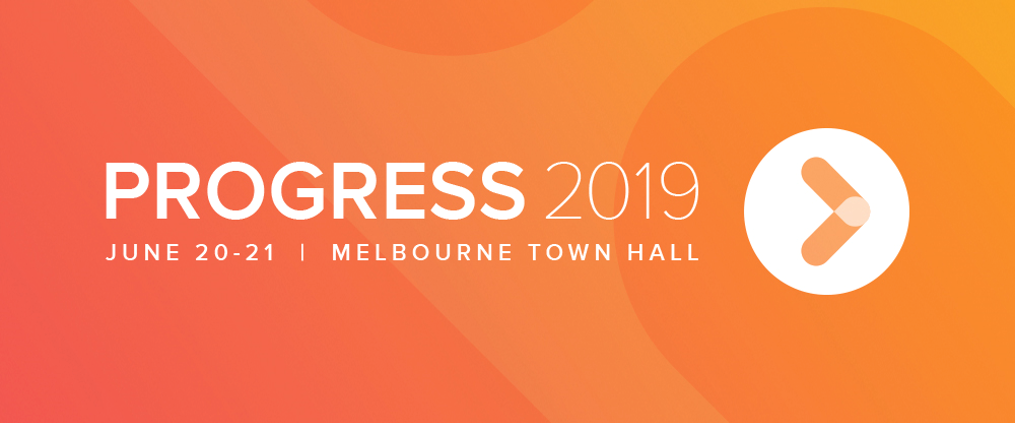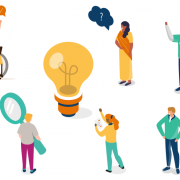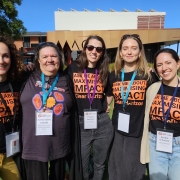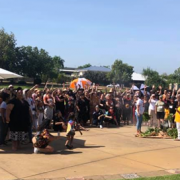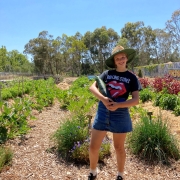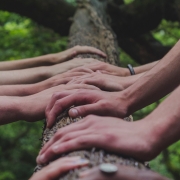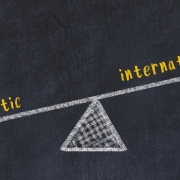Progress 2019
Progress 2019 was held over 2 days in June to address the pressing social and environmental issues the world is currently facing. The conference is a biennial event at which progressive thinkers and change makers in the social and environmental space come together to discuss current issues. Over 1500 attendees from Australia and around the world attended the event at Melbourne Town Hall. Headline speakers included Anat Shenker-Osorio, Ellie Mae O’Hagan, Bruce Pascoe, Kumi Naidoo, Owen Jones and Behrouz Boochani. The two-day program was emceed by Yassmin Abdel-Magied.
Kaisha Crupi and Shani Rajendra represented Clear Horizon at Progress 2019 in a bid to understand how Clear Horizon can better engage in this space. Their key learnings are as follows:
- We work in complex and messy systems that are tricky to navigate
We found that intersectionality was a common thread throughout this year’s conference. The key speakers noted that Australia cannot achieve true social change unless social change includes all Australians, especially the interests of First Nations people. Panels such as the “First Nations Justice” and “First Nations Land Justice highlighted the significant gaps in current social change movements. Similarly, “A Very Human Climate Crisis” panel reinforced that Australia cannot achieve true social change unless it is coupled with environmental change. Progress 2019 drove home the message that our everyday challenges in the social and environmental change space are complex and multi-faceted in nature. It was an important reminder that we all need to work collaboratively across different initiatives to tackle such complex issues.
The discussion on intersectionality tied well with the other discussions in the conference around embedding a greater understanding of complex systems in which we operate into progressive practice. In his keynote address, Kumi Naidoo, the Secretary-General of Amnesty International, referenced the role of systems change. The three requirements where the world needs to push the boundaries include system re-design, system innovation and system transformation. With these requirements, we will be in a better position to achieve social and environmental change. Kumi’s sentiments were also echoed by Lyn Morgain, Chief Executive at CoHealth who stated that:
“We need to acknowledge that transformation is iterative, dynamic and murky.”
For us working at Clear Horizon, the discussion of intersectionality and systems thinking was really exciting for us as this is how we like to work. Clear Horizon prefers to work with organisations who are already working across multi-faceted issues, particularly where social and environmental justice intersect. This also includes systems-thinking projects and organisations.
- Working in complexity is best done through strong partnerships
Each panel discussion at Progress reinforced the importance of partnerships in trying to achieve social and environmental change. At the “Philanthropists & Changemakers: Effective Partnerships to Win Systemic Change” conversation, the panellists discussed that although developing relationships and partnerships are challenging, true partnership is rewarding once it is fully developed. It was noted that the key element is to come to an agreed understanding, in order to build trust. This includes the fact that building trust takes time and that understanding what everyone wants to achieve from the partnership (both as individuals and as together) takes careful research and negotiation. We learnt that all organisations can benefit from developing strong partnerships with like-minded organisations and working together to achieve a common goal.
From this discussion, it reinforced how lucky we are to work in a space which already has already existing partnerships, which have formed over the years and are now incredibly strong. Clear Horizon has long-standing relationships with several organisations. We have found that by working in increasingly complex environments, the need to have a wide range of strong partnerships helps have more of a social and environmental impact, rather than if we were going at it alone.
- We need to make space for marginalised voices
We were reminded throughout the conference about the importance of creating a space for people from underrepresented groups in the social and environmental change space. Speakers at Progress highlighted the often used and sometimes tokenistic “let them speak” approach to inclusion which is used a lot in current practice. Instead, change makers should be looking towards organisations who are providing a supportive platform and tools in which people from underrepresented groups can choose to use when speaking for themselves. Phillip Winzer from Seed said that the question that organisations should be asking themselves is:
“What can we do to support Aboriginal and Torres Strait Islander people to implement the solutions they want?”
This question made us reflect on how organisations currently work, both at Clear Horizon and other organisations we work with. We also thought about current Clear Horizon strategies in how to recruit people from underrepresented communities as well as how we work with these communities. This includes people who advising us on how to better create spaces for people to feel welcome and accepted.
Progress taught us that no matter how progressive or values-driven organisations are, to achieve social and environmental change, they need to be proactive in involving underrepresented groups. As Kumi Naidoo said in his keynote address:
“If progressive organisations do not internalise fully the challenges we face, then we are part of the problem.”
- We need to think about how we communicate
Progress also showed us that social and environmental sectors need to think about how they connect with wider audiences. This includes talking using more accessible and plain language so everyone can understand. This includes not speaking in jargon, providing image descriptions for people with a visual impairment, or communicating with drawings and cartoons rather than text. Anat Shenker-Osorio, Founder and Principal of ASO Communications did a presentation on communication in campaigning which highlighted the need for strengths-based communication that avoids “othering”. This was a quite important learning for organisations who are trying to use alternative voices in the spaces that they work in.
From our Clear Horizon perspective, we understood that we can further develop our practices. This includes how to communicate in our workshops with people with a disability (through digital storytelling or verbal visual descriptions), not using our evaluation and design (and sometimes sector-specific) jargon as well as having clear messaging and metrics of success.
Conclusion
Progress 2019 was a thought-provoking two-days. A major learning for us was how Clear Horizon could include more diverse voices in our spaces. This could be done through more meaningful partnerships and working on having jargon free, accessible communication. We felt that as a values-based, mission-driven organisation, the benefit for Clear Horizon in continuing to engage with progressive movements such as Progress is a must-need. We also realised that our current work in systems thinking, monitoring and evaluation, and design provide us with a useful toolkit to contribute to the social and environmental justice space. We hope to work with more organisations striving for this in the future.

